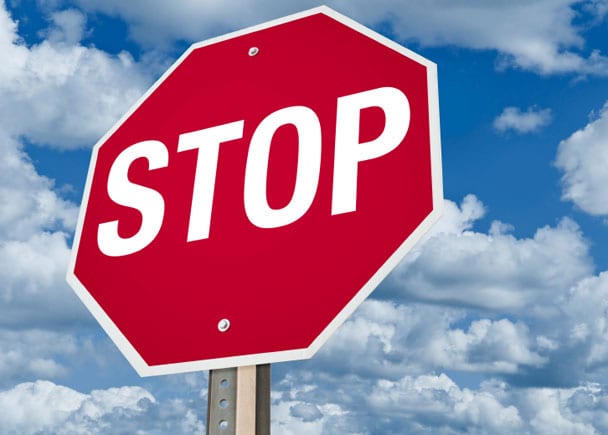I was driving much too fast. I didnt see the stop sign. I sailed right through. The stereo was pumping and my hands gripped the wheel. My foot was pushing harder on the accelerator.
I came up to a second stop sign and again I saw nothing. I pushed on the pedal to go straight through the junction, just as a truck pulled out from my right. My brakes squealed as I slammed my foot down. I jammed my fist on the horn with all my might as the truck also braked hard. The driver stared open-mouthed at me as I angrily pulled off, swearing, the anger frothing in my mouth.
How dare he just pull out in front of me?!
I sped off down the road at high speed.
And then a few hundred feet later, it suddenly dawned on me that it had been a stop sign. I knew these roads, why hadnt I realized? He had the right of way. I could feel my heart beating hard in my chest and became aware of how hard I was gripping the steering wheel.
Maybe I was getting manic
It is often so hard to recognize because it feels so good!
Recognizing that Im becoming depressed is so much easier. I become less sociable I dont answer or make calls, I reduce my use of social media, I turn down friends offers to hang out. I dont want to do the things I usually love to do and I find it hard to concentrate on books or TV or movies. I just want to sleep.
But mania is something else. It starts with feeling good about myself. I feel like the person I want to be sociable, fun, funny. I can tell stories that make people laugh, I spout jokes and puns that are clever and witty. I dont see it as mania, I see it as not being depressed and being a successful me.
It feels so good. It feels good that I dont see the red flags. Theyre not red, theyre glowing green theyre “go for it, this is fun!” flags.
I scared myself that day. The mania was making me drive with no regard for the safety of myself or others. I wasnt even aware of the signs on the road. I realized that day I had to have some contingency plan in place for recognizing when things might be going a little high, no matter how good it felt.
It is a fine balance, however, because I didnt want to be chastised for becoming less depressed, or for being sociable for a few days. When would be the time that I would start to ask for help? Before I started running stop signs, that was for sure.
These will be different for everyone, but I settled on the following, as they are very particular to me:
1. If I notice my speech change so I cant stop talking or Im getting extra witty and jokey and laughing ridiculously loudly.
2. If my sleep patterns change and I am hardly getting any sleep.
3. If I get a short fuse with very angry outbursts or act out (like I start throwing things).
4. If I start doing a huge amount of stuff, like cooking four different recipes at 3 a.m. or having endless energy to do lots of activities.
5. If Im contacting my friends really early in the morning or late at night because I cant wait for them to be awake.
6. A combination of the above.
I felt that these were points where things were getting beyond just feeling a little bit good, because they were actually affecting my day-to-day life and relationships with others. I felt that it was reasonable at this point to think I wasnt just having a normal mood or even just feeling like a competent non-depressed person something was starting to go wrong. I was going too high.
I didnt want to ever get in my car manic again, so I was glad to have a list. It is written down in the front of my journal, and my husband has a copy. I realized if I sat down and thought about it, I could put my finger on the symptoms of mania for me.
It paid off to brainstorm and plan and get it down on paper. I would recommend it to everyone. When youre going through it you just dont see it, so it helps to have it written down in advance, and to include someone you trust to help, too.
Now I see when its time to stop. And I do.
Read more of Zoe’s posts here.
The content of the International Bipolar Foundation blogs is for informational purposes only. The content is not intended to be a substitute for professional medical advice, diagnosis, or treatment. Always seek the advice of your physician and never disregard professional medical advice because of something you have read in any IBPF content.


